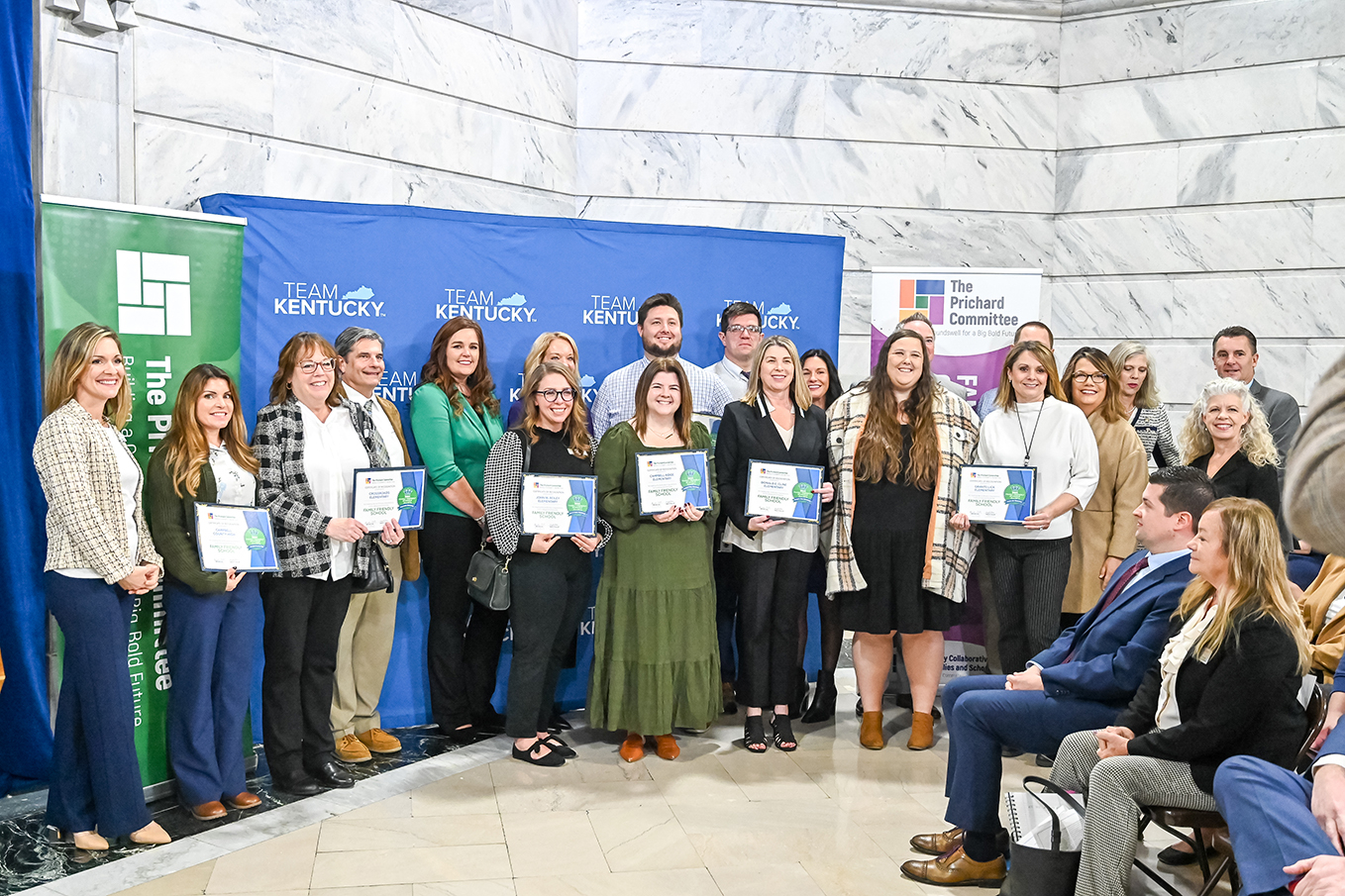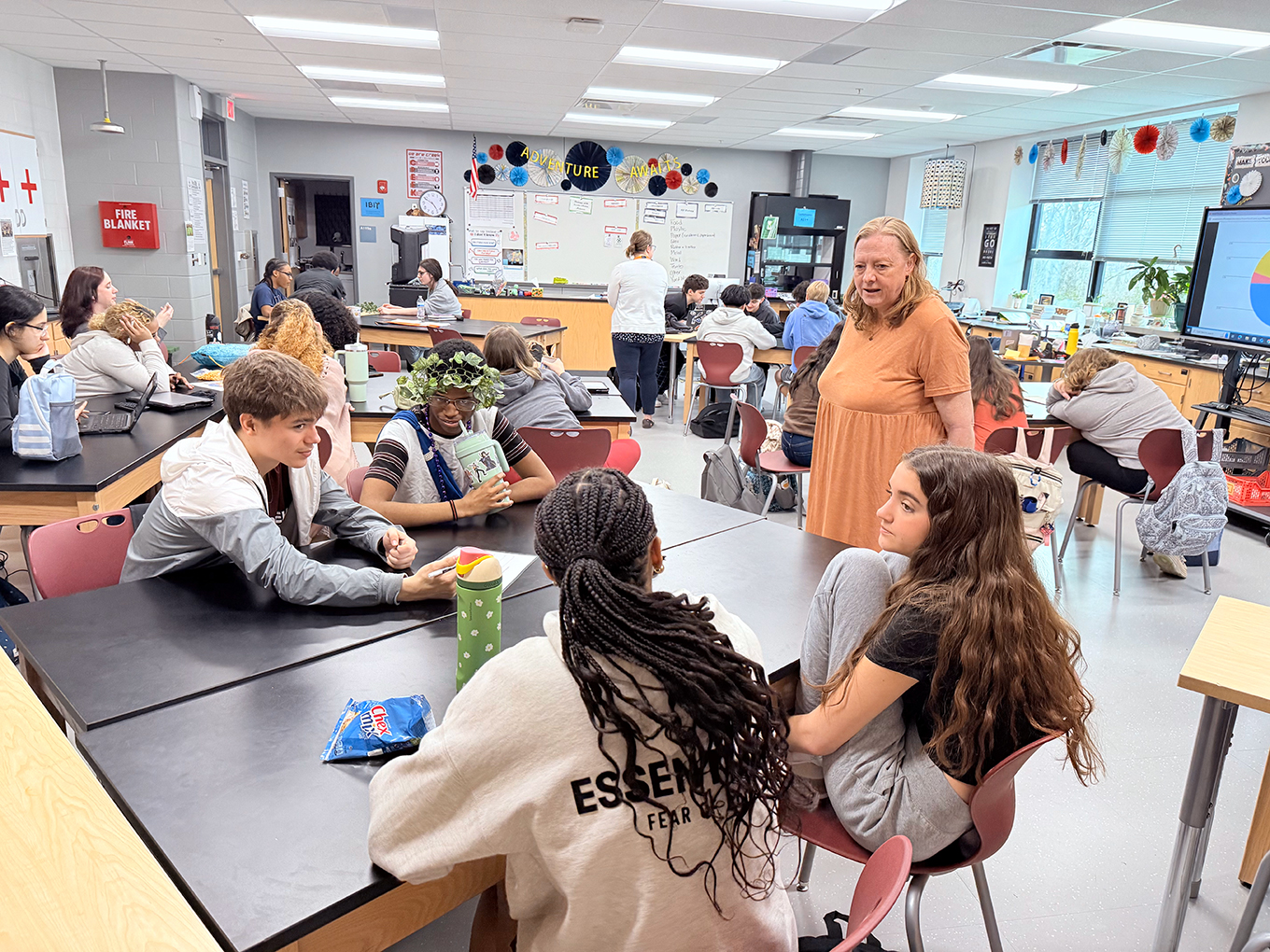As I interact with colleagues from around the state and country, the lack of teacher involvement in education policy has become increasingly apparent.
I’ve also become aware of the unique position we have as Kentucky teachers. Although many of us tend to agree with Mark Twain’s oft-repeated quote, “When the end of the world comes, I want to be in Kentucky, because everything there happens 20 years after it happens anywhere else,” Kentucky is ahead of many states when it comes to the opportunities teachers have to influence policy. If we truly want to have systemic changes in the way we educate citizens, then high-quality teachers must be a key part of policy discussions.
Even if we’d like to close the door and ignore the outside world, education policies impact our classrooms. When teachers have to deal with issues such as assessment systems, the impact seems apparent, yet very few teachers enter the field with knowledge regarding the creation of policy at the local, state, and national levels. We each have an impact on the students in our classrooms and sound policies will amplify our impact because they will enable us to work within a system that is effectively aimed at increasing student achievement.
Right now, Kentucky is taking the lead in the development of a new teacher evaluation system and the implementation of Common Core Standards. What is unique in Kentucky is that teachers are involved in both of these undertakings. Too often, educational policies are created without consulting those of us who have a direct impact on student learning. As teachers, we must embrace the existing opportunities to be involved in policymaking and look for additional opportunities.
At the school level, we have the opportunity to shape our school policy through the School-Based Decision-Making (SBDM) Council model. If you have not served on a SBDM Council, I encourage you to do so. If you serve on one, then ensure that your council remains focused on the key goal of policies–to positively impact student achievement. Seek out the expertise of other councils and organizations that help councils do their work. For example, the Kentucky Association of School Councils (KASC) assists school councils by providing standards-focused products, analyzing assessment data, and conducting training.
At the state and national level, start by becoming aware of the discussions taking place surrounding education policy. A simple online news search is a start. Also, reach out to your local, state, and national policymakers and let them know your stances and invite them to your classroom. I have discovered that most policymakers are willing – even eager – to engage teachers in conversations about education policies. There are also several national groups aimed at crafting better educational policies and ensuring that teachers are part of the discussion. Currently, I am involved with the Hope Street Group, a non-partisan, non-profit group that seeks to help improve outcomes for students.
I’ve decided that it is time to venture outside my comfort zone and try to expand the impact I have on student achievement by increasing my scale of influence. Is it time for you to do the same?
Allison Hunt, an AP Human Geography teacher at Manual High School in Jefferson County, was selected as the 2013 Kentucky High School Teacher of the Year on Oct. 17, 2012. She and Heidi Givens, the Kentucky Elementary School Teacher of the Year, will alternate monthly column-writing duties throughout their reigns. Their columns will run the last Thursday of each month.





Leave A Comment